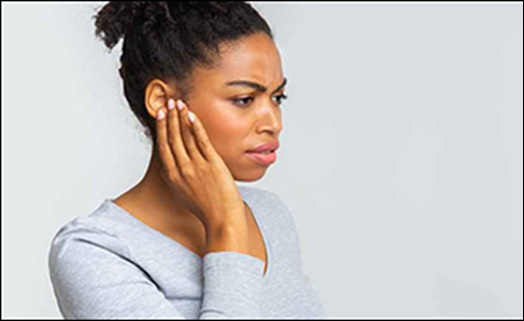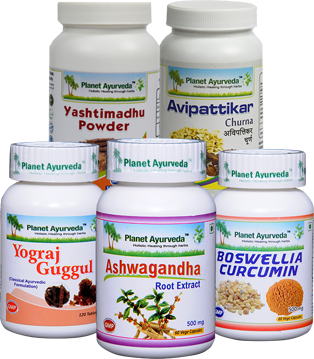Alternative Treatment of Glossopharyngeal Neuralgia
Abstract
The motor and sensory functions in our body are held by cranial nerves. Twelve cranial nerves are numbered according to the order in which they emerge from the brain. Glossopharyngeal nerve is the ninth cranial nerve. This nerve lies deep within the neck. Glossopharyngeal neuralgia indicates sharp pain in the Glossopharyngeal nerve regions. It can cause sharp stabbing pain and more problems in corresponding areas. In this article, we will discuss the causes and symptoms of Glossopharyngeal neuralgia. Also, we will discuss how we manage this condition in Ayurveda.
Introduction
Glossopharyngeal neuralgia is a rare syndrome that affects the ninth cranial nerve that is Glossopharyngeal nerve, with repeated episodes of the disorder. The main function of the Glossopharyngeal nerve is oral sensations and taste sensations. In this condition, there is a sharp pain in the tongue, throat, tonsils, and ear. This pain can last from a few seconds to minutes. The source of irritation is not found in most cases. But many factors can cause neuralgia, which is discussed further. Pain can be in episodes and can occur many times a day. Pain can be severe while resting which can wake the person from sleep.

Ayurvedic Aspect
According to Ayurveda pain is caused due to aggravation of Vata dosha. Glossopharyngeal neuralgia is classified as a ‘Vataja Vyadhi’. The aggravated Vata causes symptoms of pain in the nerves. The Vata aggravates due to inadequate diet and lifestyle. On consuming Vata vardhak aahar and living Vata vardhak lifestyle, the symptoms of pain increase, and a sudden sharp pain occurs. Therefore, in its treatment, the main focus is to manage health with herbs as well as proper dietary plans and lifestyle modification. Once the Vata dosha is pacified, the symptoms will themselves reduce and ultimately ease the disorder.
Causes
Glossopharyngeal neuralgia occurs due to irritation to the ninth cranial nerve (Glossopharyngeal nerve).
- The possible causes of irritation are-
- Compression of the nerve due to nearby blood vessels, tumors, growth in the base of the skull, and infections of the throat can also press on the Glossopharyngeal nerve.
Symptoms
The main symptom of Glossopharyngeal neuralgia is nerve pain. The pain can radiate from the neck region to nearby regions.
Common areas of pain are
- Nasopharynx (Nose and throat)
- Tongue
- Throat
- Tonsils
- Larynx
Also, the pain can be triggered while
- Chewing
- Laughing
- Talking
- Coughing
- Yawning
- Sneezing
- Taking cold beverages
Diagnosis
The diagnostic tests are indicated according to the symptoms. The main motive is to rule out the cause of nerve compression. It can be done by-
- Blood tests
- X-ray
- MRI (Magnetic resonance image)
- CT scan
- MRA (magnetic resonance angiography)
- Conventional angiography
Treatment
- The main goal of the treatment is to reduce the pain, which is done with-
- Pain killers
- Anti-seizure drugs
- Antidepressants
- Symptomatic treatment is done according to the cause of nerve compression
- Removal of infection and tumor
- Surgical procedure- Surgery is the last option in which the nerve is cut out (Rhizotomy).
Herbal Remedies for Glossopharyngeal Neuralgia by Planet Ayurveda
Planet Ayurveda is a leading manufacturing company of various herbal medications with the best overall result for 20 years. Their products are 100% pure and vegetarian and are made from standardized extracts of various potential medicinal plants by expert ayurvedic physicians. It has been preparing several herbal medicines that are successfully treating several diseases worldwide. This company is internationally certified. They strictly follow government guidelines for making their products the best. Their preparations are 100% pure and also free from any kind of preservatives. The herbal medications used in the management of Glossopharyngeal neuralgia are-

1) Boswellia Curcumin
This patent formulation is prepared with Turmeric (Curcuma longa) and Shallaki (Boswellia serrata). These herbs increase immunity and also act as an antioxidant. Their anti-inflammatory action is helpful in inflammatory diseases. Boswellic acid and curcuminoids present in these capsules work by inhibiting topoisomerase and reducing brain edema, which helps release brain relaxants and reduce tension in nerves and reduce pain. These capsules ease symptoms of pain in the nerves.
Dosage– Eat 2 capsules twice daily after meal with plain water
2) Yograj Guggul
These classical tablets are made from Chitraka (Plumbago zeylanica), Pippali (Piper longum), Jeerak (Cuminum cyminum), Guggul (Commiphora mukul), Mustaka (Citrus rotundus), Ela (Elettaria cardamomum), Amalaki (Emblica officinalis), etc. These tablets balance tridoshas in the body and support healthy muscles. These will strengthen the nerves and ease the symptoms of pain.
Dosage– Have 2 tablets twice daily after meal with plain water
3) Neurogenie Capsules
These capsules are made from extracts of Brahmi (Bacopa monnieri) – whole plant, and Ashwagandha (Withania somnifera) roots. Both of these herbs are very efficient in treating brain nervine disorders as well as increasing the overall immunity of the body. They can help the person by nourishing the nerve in the brain and controlling pain-like symptoms.
Dosage– Have 1 capsule twice daily after meal with plain water
4) Avipattikar Churna
This classical formulation is made with a combination of herbs like – Baheda (Terminalia bellirica), Peepal (Ficus religiosa), Amla (Emblica officinalis), Vidanga (Embelia ribes), Tejpatta (Laurus nobilis), Green cardamom (Elettaria cardamomum), Nisoth (Operculina turpethum), etc. This herbal mixture is mostly used to balance Pitta dosha in the body. It acts as a strong antacid so is also helpful in throat conditions. Consuming a good quantity of this churna can ease symptoms of Glossopharyngeal neuralgia.
Dosage- Eat 1 teaspoon two times daily after meal with Luke warm water.
5) Yashtimadhu Churna
This churna is made from extracts of Yashtimadhu (Glycyrrhiza glabra). It is also considered a Rasayana. It has main indications for usage in oral treatments, respiratory and digestive disorders, chronic bronchial conditions, acidity, ulcers, and any throat-related problems. It is helpful in this condition as it will help in reducing the symptoms and increasing the overall health of the person.
Dosage- Eat 1 teaspoon two times daily after meal with Luke warm water.
Conclusion
Ayurveda believes to treat the conditions from their root cause. Natural herbs, diet, and lifestyle will pacify Vata dosha and treat this condition, under the guidance of an ayurvedic doctor. The ayurvedic approach to balance doshas helps manage these conditions. Ayurveda is a way to reclaim your health naturally without side effects. For any queries visit us at www.planetayurveda.com




